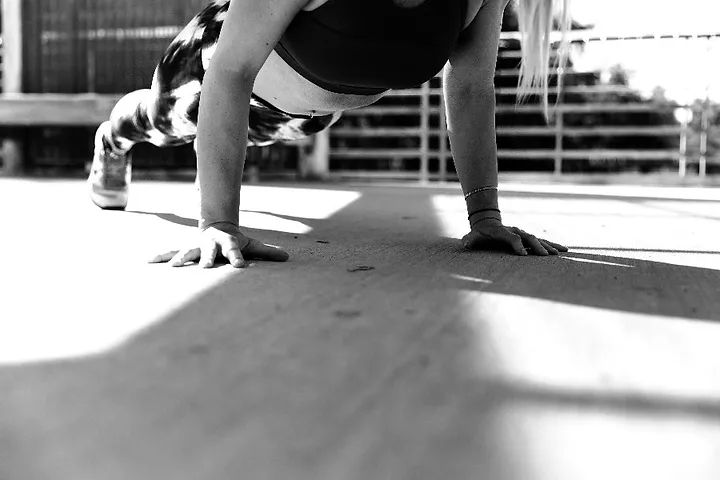Zinc plays a crucial role in athletic performance, yet it is often overlooked in sports nutrition discussions. This essential mineral is vital for energy metabolism, muscle recovery, and immune function, making it a key factor in optimizing training outcomes. Athletes who understand the importance of zinc can enhance their performance, reduce recovery times, and maintain their overall health.
This article explores the multifaceted benefits of zinc, detailing how it supports muscle growth and recovery, and provides practical advice on incorporating zinc-rich foods into your diet. Additionally, we will discuss the potential advantages of zinc supplements, ensuring you have the knowledge to make informed decisions about your nutrition and training regimen.
In this article you will find:
Understanding Zinc’s Role in Athletic Performance
Zinc is often overlooked in discussions about sports nutrition, yet it plays a vital role in enhancing athletic performance. This essential mineral is crucial for various physiological functions that directly impact an athlete’s capabilities, from energy metabolism to immune function. Understanding how zinc contributes to athletic performance can empower athletes to optimize their training and recovery.
The Importance of Zinc in Energy Metabolism
Zinc is integral to the body’s energy production processes. It acts as a cofactor for numerous enzymes involved in the metabolism of carbohydrates, proteins, and fats. This means that adequate zinc levels can enhance your body’s ability to convert food into usable energy efficiently. A deficiency in zinc can lead to fatigue, decreased endurance, and reduced overall performance.
Zinc’s Impact on Muscle Growth and Repair
For athletes, muscle recovery and growth are essential components of performance. Zinc plays a pivotal role in protein synthesis and muscle repair. It influences the activity of satellite cells, which are essential for muscle regeneration after strenuous workouts. This process is crucial for athletes looking to build strength and recover quickly from intense training sessions.
Boosting Immune Function for Enhanced Performance
Regular intense training can weaken the immune system, making athletes susceptible to illness. Zinc is known for its immune-boosting properties, as it supports the development and function of immune cells. Athletes with adequate zinc levels are less likely to experience illness, allowing them to maintain their training schedules and peak performance. Incorporating zinc into your diet can serve as a preventive measure against training disruptions due to illness.
Sources of Zinc for Athletes
To reap the benefits of zinc, athletes should focus on dietary sources rich in this essential mineral. Some of the best sources include:
- Red meat and poultry
- Seafood, particularly oysters and shellfish
- Beans and legumes
- Nuts and seeds
- Dairy products
- Whole grains
For those who may struggle to get enough zinc through diet alone, zinc supplements can be a practical option. However, it’s essential to consult with a healthcare provider before starting any supplementation regimen to ensure safety and efficacy.
Conclusion
Understanding the role of zinc in athletic performance provides a valuable perspective for athletes aiming to enhance their training outcomes. By ensuring adequate zinc intake, athletes can improve energy metabolism, support muscle recovery, and bolster their immune systems, ultimately unlocking their full athletic potential.
The Science Behind Zinc and Muscle Recovery
Zinc is not just an essential mineral; it plays a pivotal role in the complex processes of muscle recovery. After intense workouts, the body undergoes a series of physiological changes that require various nutrients to repair and rebuild muscle tissues. Understanding how zinc contributes to these processes can help athletes enhance their recovery strategies and improve overall performance.
Zinc and Protein Synthesis
One of the primary roles of zinc in muscle recovery is its involvement in protein synthesis. Muscle repair occurs when the body synthesizes new proteins to replace damaged ones. Zinc is a critical cofactor for several enzymes that facilitate this process, including those involved in the translation of mRNA into proteins. Without adequate zinc, the body may struggle to rebuild muscle fibers, leading to prolonged recovery times and decreased performance.
Anti-Inflammatory Properties of Zinc
Intense exercise often leads to inflammation, which can hinder recovery. Zinc has been shown to possess anti-inflammatory properties, helping to reduce the inflammatory response following strenuous workouts. By modulating the release of pro-inflammatory cytokines, zinc can aid in minimizing muscle soreness and accelerating recovery times. This allows athletes to return to training more quickly and effectively.
Immune System Support During Recovery
After intense physical exertion, the immune system can become compromised, increasing susceptibility to illness. Zinc plays a crucial role in supporting immune function, helping to prevent infections that could derail an athlete’s training regimen. Adequate zinc levels ensure that the immune system can effectively respond to stressors, allowing for a smoother recovery process.
The Relationship Between Zinc and Hormonal Balance
Zinc also influences hormonal balance, particularly hormones related to muscle recovery and growth, such as testosterone and insulin-like growth factor 1 (IGF-1). These hormones play a significant role in muscle anabolism and recovery. Maintaining optimal zinc levels can help regulate these hormones, supporting a favorable environment for muscle repair and growth.
Practical Tips for Zinc Intake
To harness the benefits of zinc for muscle recovery, athletes should prioritize dietary sources of this essential mineral. Consider incorporating the following foods into your meals:
- Lean meats like beef and chicken
- Fish such as salmon and sardines
- Legumes like chickpeas and lentils
- Nuts and seeds, particularly pumpkin seeds
- Dairy products, including cheese and yogurt
For athletes who may have higher zinc needs due to intense training, zinc supplementation can be considered. However, it is essential to consult a healthcare professional before starting any supplement to avoid excessive intake, which can lead to adverse effects.
Conclusion
Recognizing the science behind zinc and its critical role in muscle recovery can empower athletes to optimize their recovery strategies effectively. By ensuring adequate zinc intake, athletes can support protein synthesis, reduce inflammation, bolster immune function, and maintain hormonal balance, all of which contribute to enhanced recovery and improved athletic performance.
Incorporating Zinc into Your Diet for Optimal Results
Ensuring adequate zinc intake is essential for athletes seeking to maximize their performance and recovery. By incorporating zinc-rich foods into your diet, you can support various bodily functions that contribute to overall athletic success. This section will explore practical strategies for integrating zinc into your daily nutrition plan effectively.
Identifying Zinc-Rich Foods
To optimize your zinc levels, it’s crucial to identify and consume foods that are rich in this mineral. Here are some excellent sources of zinc:
- Oysters: Considered one of the best sources, oysters provide a significant amount of zinc per serving.
- Red Meat: Beef, lamb, and pork are not only rich in zinc but also provide high-quality protein necessary for muscle repair.
- Poultry: Chicken and turkey are good sources, making them ideal for athletes looking to increase their zinc intake.
- Legumes: Beans, lentils, and chickpeas are excellent plant-based sources of zinc, suitable for vegetarians and vegans.
- Nuts and Seeds: Pumpkin seeds, cashews, and hemp seeds are great snack options that boost zinc levels.
- Dairy Products: Cheese and yogurt not only provide zinc but also support overall bone health.
Meal Planning for Zinc Intake
Incorporating zinc into your diet requires thoughtful meal planning. Here are some practical tips to ensure you’re meeting your zinc needs:
- Start with Breakfast: Include zinc-rich foods like Greek yogurt topped with pumpkin seeds or a smoothie with spinach and protein powder.
- Lunch Options: Opt for salads with chickpeas, grilled chicken, or beef, and add a variety of colorful vegetables for extra nutrients.
- Dinner Ideas: Incorporate lean meats such as grilled salmon or stir-fried beef with vegetables, served alongside whole grains like quinoa or brown rice.
- Snacks: Choose snacks that include nuts, seeds, or cheese to maintain zinc levels throughout the day.
Considerations for Vegetarians and Vegans
For athletes following vegetarian or vegan diets, it’s essential to focus on plant-based sources of zinc. However, the bioavailability of zinc from plant sources is lower due to the presence of phytates, which can inhibit absorption. To enhance zinc absorption, consider the following:
- Soaking and Sprouting: Soaking beans, lentils, and grains before cooking can reduce phytate levels, improving zinc availability.
- Fermented Foods: Incorporating fermented foods like tempeh or miso can enhance the digestibility of zinc in plant foods.
- Combine with Vitamin C: Eating zinc-rich foods alongside vitamin C-rich foods (such as citrus fruits) may improve absorption.
Monitoring Zinc Levels
While it’s essential to ensure sufficient zinc intake, it’s equally important not to overconsume. Excessive zinc can lead to toxicity and interfere with the absorption of other minerals like copper. Athletes should consider monitoring their zinc levels through dietary assessments or consultation with a healthcare professional.
For more in-depth guidance on nutrition for athletes, you can explore resources like Nutrition and Athletic Performance published by the Academy of Nutrition and Dietetics.
Conclusion
By strategically incorporating zinc-rich foods into your diet, you can support optimal performance and recovery. With careful planning and consideration of food choices, athletes can effectively harness the benefits of zinc to enhance their athletic journey.
Zinc Supplements for Enhanced Endurance and Strength
As athletes strive to improve their performance, many turn to supplements to fill nutritional gaps and enhance their training outcomes. Among the various supplements available, zinc has gained attention for its potential benefits in boosting endurance and strength. This section delves into the role of zinc supplements, their effectiveness, and key considerations for athletes.
The Benefits of Zinc Supplements
Zinc supplements can offer several benefits for athletes, particularly in the realms of endurance and strength training:
- Improved Muscle Recovery: Zinc plays a critical role in protein synthesis and muscle repair. Supplementing with zinc can help athletes recover more efficiently after intense workouts, allowing them to train harder and more frequently.
- Enhanced Immune Function: Regular training can weaken the immune system, making athletes more susceptible to illness. Zinc supplementation can help maintain a robust immune response, reducing downtime due to sickness.
- Increased Testosterone Levels: Adequate zinc levels are essential for maintaining healthy testosterone levels, which are crucial for muscle growth and strength gains. Supplementing with zinc may support hormonal balance, particularly in athletes who may be deficient.
- Boosted Endurance: Some studies suggest that zinc supplementation can improve endurance performance by enhancing aerobic capacity and energy production during exercise.
Choosing the Right Zinc Supplement
When considering zinc supplementation, it’s essential to select the right form and dosage to maximize benefits:
- Forms of Zinc: Zinc supplements come in various forms, including zinc gluconate, zinc citrate, and zinc picolinate. While all forms can provide benefits, zinc picolinate is often considered more bioavailable, meaning it may be better absorbed by the body.
- Recommended Dosage: The recommended dietary allowance (RDA) for zinc varies by age and gender. For adult men, the RDA is approximately 11 mg, while for adult women, it’s around 8 mg. Athletes may require higher amounts, but it’s crucial to consult with a healthcare professional to determine individual needs.
- Timing of Supplementation: Taking zinc supplements post-workout can be beneficial for recovery, but they can also be taken with meals to enhance absorption. Avoid taking zinc supplements with high-calcium foods, as calcium can inhibit zinc absorption.
Potential Risks and Side Effects
While zinc supplementation can be beneficial, it’s essential to be aware of potential risks:
- Excessive Intake: Overconsumption of zinc can lead to toxicity, resulting in symptoms such as nausea, vomiting, and a weakened immune response. It’s crucial to adhere to recommended dosages and consult with a healthcare provider.
- Interference with Other Minerals: High doses of zinc can interfere with the absorption of other essential minerals, such as copper and iron. Balancing mineral intake is vital for overall health.
Integrating Zinc Supplements into Your Routine
To effectively integrate zinc supplements into your training regimen, consider the following tips:
- Consult a Professional: Before starting any supplementation, consult with a healthcare provider or a sports nutritionist to assess your specific needs and avoid potential interactions with other supplements or medications.
- Monitor Your Progress: Keep track of your performance, recovery times, and overall health after starting zinc supplementation. Adjust dosages or forms as needed based on your experiences.
- Combine with a Balanced Diet: Remember that supplements should complement a well-rounded diet rich in whole foods. Focus on obtaining zinc from food sources while using supplements strategically.
For more information on the benefits of zinc supplements for athletes, you can explore resources like the National Institutes of Health, which provides comprehensive details on zinc and its health effects. Zinc is a vital mineral for athletes, playing a crucial role in energy metabolism, muscle growth, and immune function. It aids in protein synthesis, helping to repair muscle tissues after intense workouts while also supporting hormonal balance and enhancing endurance. Athletes can obtain zinc from various dietary sources, including red meat, seafood, legumes, nuts, and dairy products. For those struggling to meet their zinc needs through diet alone, supplementation can be beneficial, but it’s essential to consult a healthcare provider for personalized guidance.
When considering zinc supplements, athletes should choose bioavailable forms like zinc picolinate and adhere to recommended dosages to avoid potential toxicity. Integrating zinc into a balanced diet and monitoring individual health and performance can optimize training outcomes. By ensuring adequate zinc intake, athletes can improve recovery times, boost strength, and maintain overall health, leading to enhanced athletic performance.




